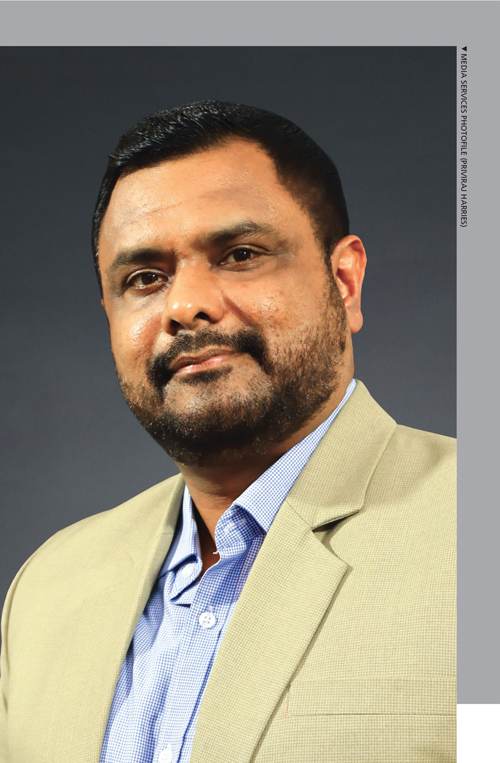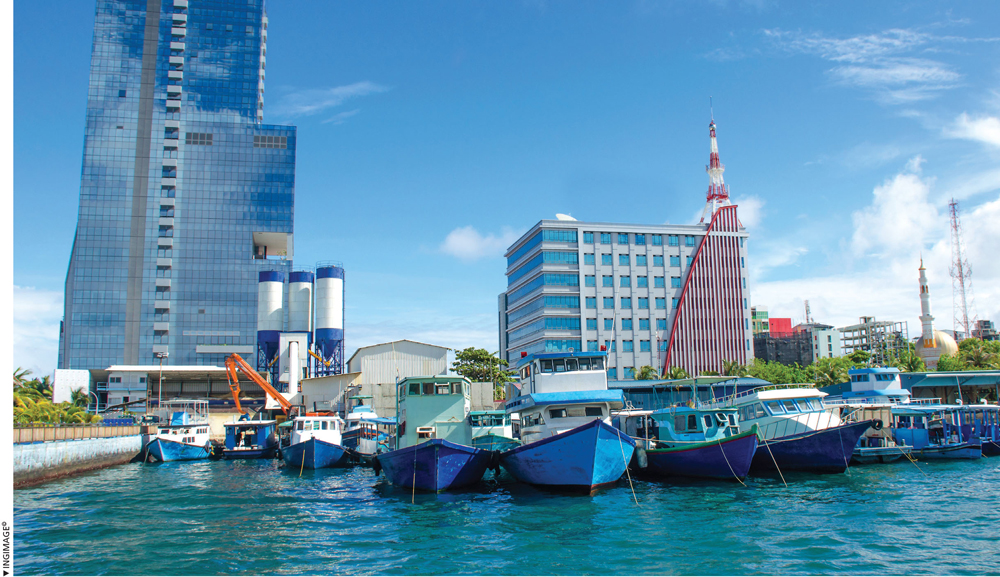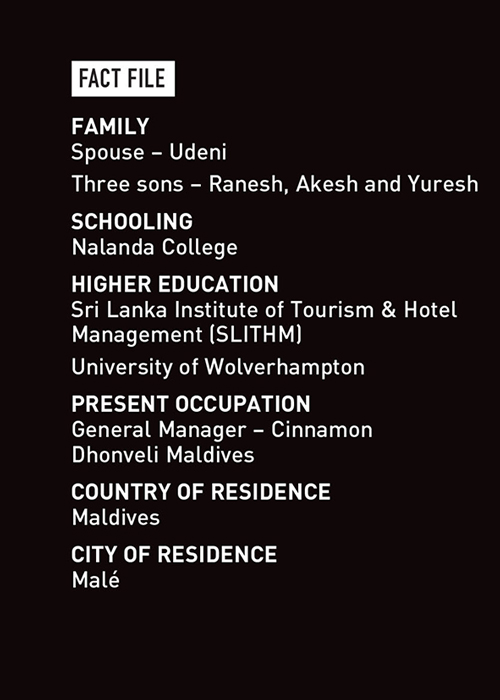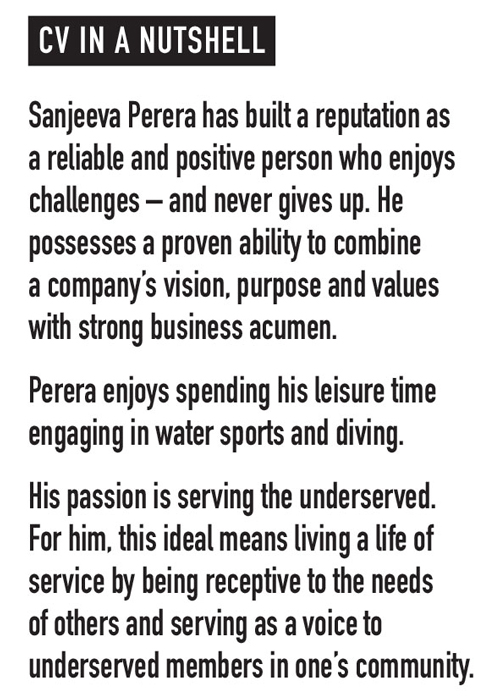Sanjeeva Perera

A leaf out of the Maldives’ book
Q: In the hospitality arena, customer service is paramount. On the other hand, adaptability is also crucial. What role does technology play in this mix?
A: Technology is evolving rapidly, giving us new ideas and methods to improve the hospitality and hotel sectors.
It is a given that technology offers many benefits to the hospitality sector. For example, technologies like AI chatbots can improve the guest experience, mobile ordering can increase efficiency, and robots can reduce staff workloads and minimise costs.
The advent of the Internet of Things (IoT) transports us into a new era of connectivity, effectively transforming traditional hotel rooms into smart rooms. IoT empowers hotels to provide personalised settings, automated temperature controls, voice activated assistants and even personalised greetings upon guest arrival.
IT is essential for the success of any hospitality business. By leveraging the latest technologies, businesses can streamline their operations, increase efficiency and improve customer service. This helps reduce costs, increase revenue and ensure long-term profitability.

Q: How would you describe the historical relationship between the Maldives and Sri Lanka?
A: The Maldives has been inhabited since around the 5th century BC with early settlers arriving from present-day Sri Lanka and India.
Prior to establishing diplomatic relations, the Maldives and Sri Lanka maintained trade ties. Since then, diplomatic ties have continued to strengthen. In 1981, the Maldives and Sri Lanka were among the seven founding members of the South Asian Association for Regional Cooperation (SAARC).
Over the years, the historic ties between the two countries expanded around education, trade and investment, tourism and culture. These ties have evolved across many dynamic sectors such as economic, education, tourism, fisheries, employment, human resource development and healthcare.
The longstanding relationship, and mutual trust and respect, that exists between our two countries has made Sri Lanka a lifelong friend of the Maldives.
Q: The Maldives has renewed its sustainability efforts in line with rising sea levels. What lessons can Sri Lanka learn from the Maldives in this regard?
A: Climate change is the single biggest health threat facing humanity. It’s already posing new challenges in the Maldives with more frequent soil erosion, loss of beaches, and saltwater intrusion into land and freshwater sources.
To combat this, the country has led by example. It has low carbon growth, environmentally sustainable and resilient smart healthcare services, and addressing factors affecting environmental health is at the core of its development policy.
Sri Lanka can learn lessons such as leadership in prioritising environmental health by safeguarding water, saving energy, reducing waste, using recyclable packaging, limiting or eliminating the use of plastic, using sustainable transport, reusing paper, and protecting flora and fauna.

Q: Based on your experience in the Maldives, what strategies would you adopt to promote tourism here in Sri Lanka?
A: Sri Lanka has only scratched the tip of the iceberg when it comes to achieving the tourism industry’s potential as most of the growth so far has been concentrated on the main tourist destinations such as Colombo, Kandy, Bentota and so on.
There are several unexplored destinations with a plethora of attractions and varied experiences for tourists; but they’re lagging due to the lack of last mile connectivity and good infrastructure facilities.
Going forward, the industry’s holistic development should be the focus of all key industry stakeholders. Sri Lanka can take a leaf out of the Maldives’ book and adopt some best practices in its own growth journey.
Infrastructure development, improved air connectivity, foreign investments, decentralising tourism from Malé to other islands, developing accommodation to attract a wider segment of tourists and targeted marketing while ensuring the preservation of the ecosystem have led to the Maldives earning a reputation for being a tourism success story – and the archipelago attracts tourists all year round.
Over the past 30 years, the expansion of the luxury tourism segment, economic diversification, policy formulation and robust marketing have helped the growth of the tourism industry in the Maldives.
Q: Finally, how would you describe your connection with Sri Lanka? And how has this cross-cultural experience enriched your life and broadened your horizons?
A: While I was in Sri Lanka, I spearheaded several community related projects for the betterment of people involved in tourism. In the Maldives too, I walk the same path to promote community-based tourism.
Wherever I’m placed, I focus on preserving cultures, protecting the environment, empowering associates and developing youth.
Sri Lanka can take a leaf out of the Maldives’ book and adopt some best practices in its own growth journey


